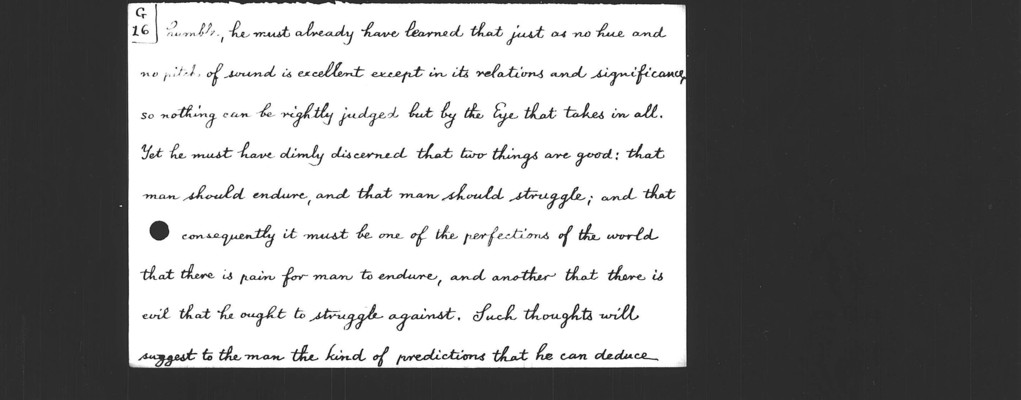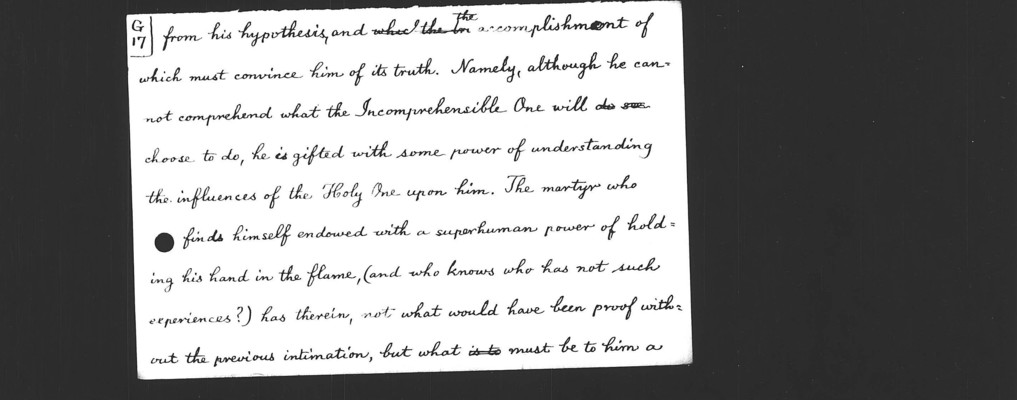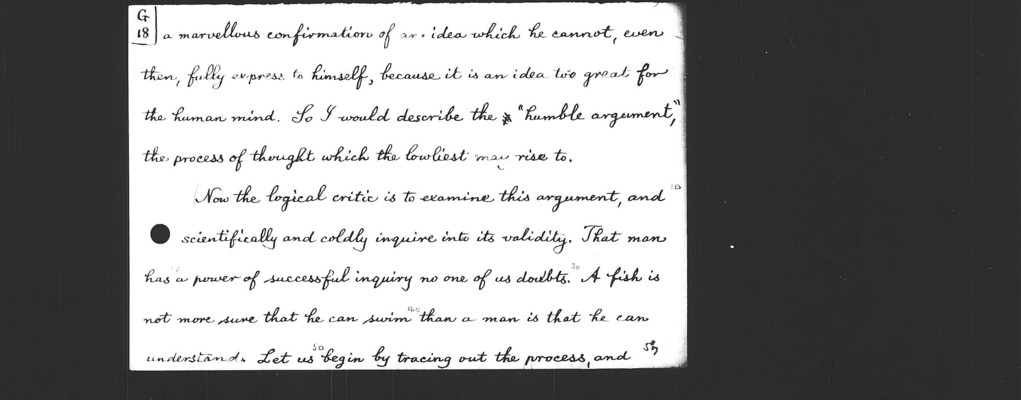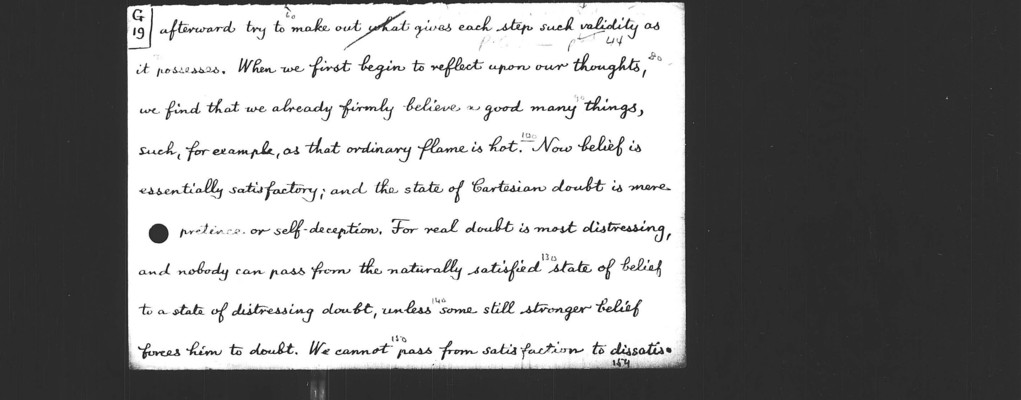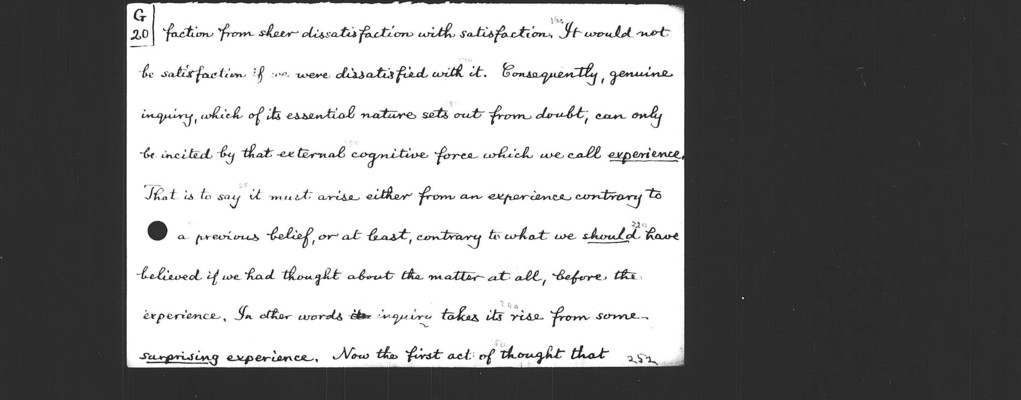Pages
16
G16
humble, he must already have learned that just as no hue and no pitch of sound is excellent except in its relations and significance, so nothing can be rightly judged but by the Eye that takes in all. Yet he must have dimly discerned that two things are good: that man should endure, and that man should struggle; and that consequently it must be one of the perfections of the world that there is pain for man to endure, and another that there is evil that he ought to struggle against. Such thoughts will suggest to the man the kind of predictions that he can deduce
17
G17
from his hypothesis, and which the tr the accomplishment of which must convince him of its truth. Namely, although he cannot comprehend what the Incomprehensible One will do see choose to do, he is gifted with some power of understanding the influences of the Holy One upon him. The martyr who finds himself endowed with a superhuman power of holding his hand in the flame, (and who knows who has not such experiences?) has therein, not what would have been proof without the previous intimation, but what is to must be to him a
18
G18
a marvellous confirmation of an idea which he cannot, even then, fully express to himself, because it is an idea too great for the human mind. So I would describe the "humble argument," the process of thought which the lowliest may rise to.
Now the logical critic is to examine this argument, and scientifically and coldly inquire into its validity. That man has a power of successful inquiry no one of us doubts. A fish is not more sure that he can swim than a man is that he can understand. Let us begin by tracing out the process, and
19
G19
afterward try to make out what gives each step such validity as it possesses. When we first begin to reflect upon our thoughts, we find that we already firmly believe a good many things, such, for example, as that ordinary flame is hot. Now belief is essentially satisfactory; and the state of Cartesian doubt is mere pretence or self-deception. For real doubt is most distressing, and nobody can pass from the naturally satisfied state of belief to a state of distressing doubt, unless some still stronger belief forces him to doubt. We cannot pass from satisfaction to dissatisfaction
20
G20
from sheer dissatisfaction with satisfaction. It would not be satisfaction if we were dissatisfied with it. Consequently, genuine inquiry, which of its essential nature sets out from doubt, can only be incited by that external cognitive force which we call experience. That is to say it must arise from an experience contrary to a previous belief, or at least, contrary to what we should have believed if we had thought about the matter at all, before the experience. In other words, the inquiry takes its rise from some surprising experience. Now the first act of thought that
